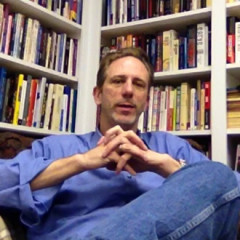
Supporters of Syrian President Bashar Assad gather in Damascus’s Bahrat Square – Courtesy of FreedomHouse (http://bit.ly/17lre46)
The Syrian civil war has become a humanitarian hell. More than 100,000 are dead, images of a state-sanctioned chemical weapons attack have evoked a global protest, and most Western leaders agree that Syrian President Bashar Assad is an all-around bad guy. But enacting another bloody and expensive war against an unstable Middle Eastern country, particularly one with the backing of Russia and Iran, is something many Americans have little stomach for.
So which position should Christians support?
Traditionally, Christians have viewed war through one of two lenses. Those who hold to just war theory believe that war is often right if the violent conflict meets certain criteria. This is the view held by most Catholics and conservative Protestants. On the other hand, Christian pacifists believe that violence is incompatible with a faith that is patterned after the one who blessed peacemakers and urged his followers to “turn the other cheek.”
But in recent years, a third view called just peacemaking has gained traction among some Christians. It has been promoted by evangelical theologians Glenn Stassen and David Gushee, and supports the prevention of war through nonviolent direct action and cooperative conflict resolution. Stassen and Gushee point out that just peacemaking theory is not intended to be a substitute for just war or pacifism, but rather a supplement and corrective.
Below are position statements on the Syrian conflict from Christian thought leaders representing each of these perspectives:
Just War | Russell Moore,
President of The Ethics and Religious Liberty Commission
The first principle of a just war, that of a just cause, has been met in this case. Assad’s regime is lawless and tyrannical, and rightly provokes international outrage. That said, there are other principles missing here, both to justify action morally and to justify it prudentially.
I do not see, from President Obama, a reasonable opportunity to prevail, or even a definition of what prevailing would mean. Regime change is not the point of this action, and even if it were, we don’t yet know who the good guys are. Replacing one set of terrorists with another does not bring about justice or peace.
I agree with the President on the moral urgency of Syria, and I morally reject the crypto-isolationist voices that tell us, in every era, to tend to “America First” and leave defenseless people around the world on their own. In this case, though, the Administration is demonstrating neither an imminent threat to national security nor a feasible means to alleviate the very real human rights crisis in Syria.
Moreover, there is the very real threat to religious minority communities in Syria. How will an attack further jeopardize the Body of Christ in Syria? Could it be that an anarchic regime of al-Qaeda sympathizers could do to the church in Damascus what Jesus prevented Saul of Tarsus from doing? Those are questions worth answering, and that means the President and the Secretary of State must communicate to the country not just the moral condemnation of the Assad regime (most of us agree), but the more difficult task of communicating the moral case for American intervention in this civil war, making clear how such wouldn’t make the situation worse.
Saving national credibility is important but it does not make a war just. The President must use his bully pulpit to make the case that what he wants to do here is more than a symbol, a symbol that will leave blood and fire in its wake. Right now, it seems the Administration is giving an altar call for limited war, without having preached the sermon to make the case.
If I were in Congress, I would vote “no” on this war.
Pacifism | Jonathan Wilson-Hartgrove,
author of Strangers at My Door
The news this weekend feels to me so much like Colin Powell’s presentation to the UN in 2003. We always want to go to war for a moral reason. But as a Christian, I have to ask, “How is Assad’s violence toward innocent civilians morally different than our ‘shock and awe’ bombing of Baghdad?” When I see the images from Syria, my gut wrenches. But I don’t ask, “How could anyone do that?” because I was in Baghad in 2003. I know that we did that–and did it while we were telling our citizens we weren’t.
Of course, that was the Bush administration. But I cannot forget the stories I’ve heard from friends in Afghanistan about drone attacks under the Obama administration. We love drones because they don’t put US soliders at risk. But when they hit the home of a known Al Qaeda operative, they kill indiscriminately.
Obama is trying to maintain credibility by meeting force with force. But Jesus showed us a better way–that we can only overcome evil with good. We are in no position to do this as a nation because we’ve invested all of our resources in the overwhelming power of military machines. But these technologies cannot bring peace. Indeed, I fear our investment in them has catapulted us into a policy of perpetual war. If troop numbers are down in Iraq and Afghanistan, then the Pentegon needs somewhere else to do its business. If not, contractors would be out of business. This is a cruel economic calculus.
Our only hope is to refuse cooperation with a system that demands violence and begin investing our lives and resources in things that make for peace. Of course, someone will ask, “But what about the innocent victims? Don’t you care for them?” As a disciple of the nonviolence of Jesus, I have to admit that some people may die because of my refusal to fight with violence. But people also die when we fight with violence. Nonviolence is not passive. It seeks to devote our resources to a better way. In our present public policy framework, this looks like opting out. But it is not disengagement. Christian nonviolence is engagement of the most serious kind. I give thanks for small experiments like the Christian Peacemaker Teams, Muslim Peacemaker Teams, and the Global Nonviolent Peaceforce. We won’t have better options on the global stage at a time like this until we invest seriously in these approaches to intervention.
Just Peacemaking | David Gushee,
author of The Sacredness of Human Life
From all indications, President Obama has never been contemplating more than a relatively small punitive strike on Syrian military targets, so we are not really talking about a “war.” The question is on what basis might a punitive strike by the United States (and possibly some group of allies) be morally justified, and whether there are any alternatives that are morally preferable.
In the world envisioned by the official declarations and principles of the United Nations, the world community, acting primarily through the UN Security Council, would long ago have intervened in the Syrian civil war. Proven use of chemical weapons by the Syrian regime would certainly have triggered the condemnation of the world, and the UN would have stepped in with various steps to protect civilians, separate the warring parties, and isolate and possibly remove the Syrian regime. Sadly, we do not today live in the world envisioned by the United Nations, because power politics and alliances and resentments continually prevent the five powers of the UN Security Council from acting in concert.
Just peacemaking theory would suggest that the United States should first test the UN’s own principles by taking a case for rigorous international intervention in Syria before the UN Security Council. Show all the evidence. Call for the UN to live up to its own principles. Draft a strong resolution. Only if such a resolution should fail would the US have a case for going it alone. The president could say that international moral and legal norms and humanitarian concern demand international action, but failing that, the United States is acting in the stead of the international community. This is a case that could be far more effectively made after an effort at the UN.
But in this case, so far, anticipation of failure has led to a preemption of a UN effort. This has led the US out onto a very shaky limb. And the weakness of the President’s isolated position is reducing the likelihood that the United States (or anyone else) will end up doing anything at all. Meanwhile, civilians continue to die in large numbers, and the threshold against using chemical weapons has been breached without penalty by Syria.








